Rodney Schulz

MBA '89
What do you do professionally?
First, I couldn’t be happier with where I am in my personal life and career, which was largely facilitated by my MBA from Duke University’s Fuqua School of Business.
 I spend most of my time working as a financial advisor for mid net worth families on achieving their financial goals.
I spend most of my time working as a financial advisor for mid net worth families on achieving their financial goals.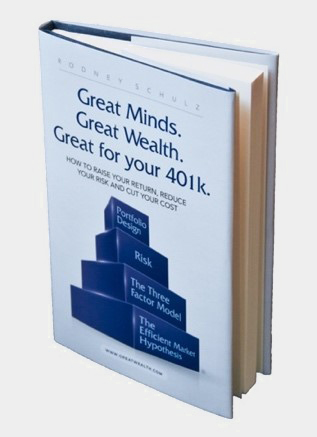 I started Schulz Financial, LLC in 2003 with no clients, no money, and no prior experience in financial services. I’m now managing tens of millions of dollars, making a living and enjoying what I do.
I started Schulz Financial, LLC in 2003 with no clients, no money, and no prior experience in financial services. I’m now managing tens of millions of dollars, making a living and enjoying what I do.
Last spring I published Great Minds. Great Wealth. Great for Your 401k. Subtitle: How to Raise Your Return, Reduce Your Risk and Cut Your Cost. In it I simply take some of the statistical and Nobel Prize winning things I first learned at Fuqua and put them in layman’s language. Just as Steve Jobs dreamed of developing a computer that everyone could use (not just the geeks), my dream is to present a simple investment strategy that everyone can see, understand, and use in their 401k or other investments.
 After receiving a number of strong reviews on the book, I decided to create an online course based on the book. Now in production, the course should be ready by December 2020.
After receiving a number of strong reviews on the book, I decided to create an online course based on the book. Now in production, the course should be ready by December 2020.
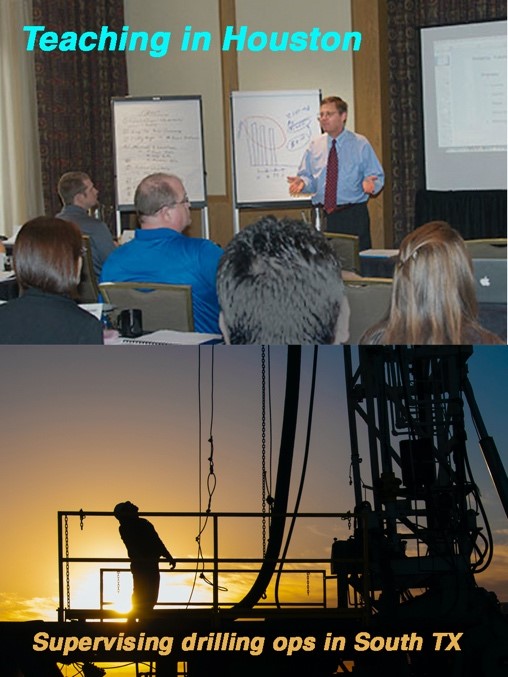 Also, I occasionally teach a seminar for the Society of Petroleum Engineers (SPE), Oil & Gas Economics and Uncertainty. I base it on what I learned at Fuqua as well as my petroleum engineering experience. Students have come from London, Nigeria, Saudi Arabia, Columbia, and elsewhere with employers such as McKinsey & Company, Shell, Chevron, Saudi Aramco, Pemex, ADNOC, ConocoPhillips, and others.
Also, I occasionally teach a seminar for the Society of Petroleum Engineers (SPE), Oil & Gas Economics and Uncertainty. I base it on what I learned at Fuqua as well as my petroleum engineering experience. Students have come from London, Nigeria, Saudi Arabia, Columbia, and elsewhere with employers such as McKinsey & Company, Shell, Chevron, Saudi Aramco, Pemex, ADNOC, ConocoPhillips, and others.
And finally, I have a commercial photography web site, www.realphotos.net.
Something I believe most people overlook is that when you earn a Duke MBA you get an education that applies to a broad range of endeavors. The Fuqua experience has opened many opportunities for me.
What is the most enjoyable part of your job?
That’s easy: taking clients to lunch and helping them feel confident about their financial situation.
What is the biggest challenge you face?
I’m fortunate in that I haven’t had to battle life-threatening illnesses like cancer or heart disease. However, I do deal with two disabilities: Tourette’s Syndrome and a “profound” level of hearing loss in both ears, as well as several gastro-intestinal issues. Although none are life-threatening, the combination limits my daily work load to 3-5 hours and ~500 words of typing.
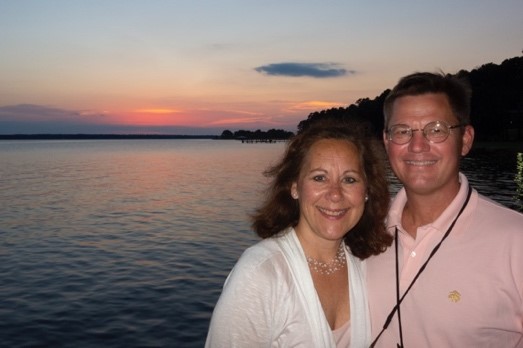 About 6-7 years after graduating from Fuqua in 1989, the muscle ticks from Tourette’s Syndrome were so severe that I couldn’t safely drive a car. Tourette common mental challenges further complicated the situation.
About 6-7 years after graduating from Fuqua in 1989, the muscle ticks from Tourette’s Syndrome were so severe that I couldn’t safely drive a car. Tourette common mental challenges further complicated the situation.
After many reputable medical centers, including the Duke Medical Center while I was at Fuqua, failed to diagnose and treat it, a doctor right out of residency nailed it and then another neurologist fine-tuned the medication. Overall, the situation lasted fifteen+ years and destroyed my corporate career. It also added mountains of stress to my marriage and personal life. I am forever grateful that my wife, Pam, stuck with me.
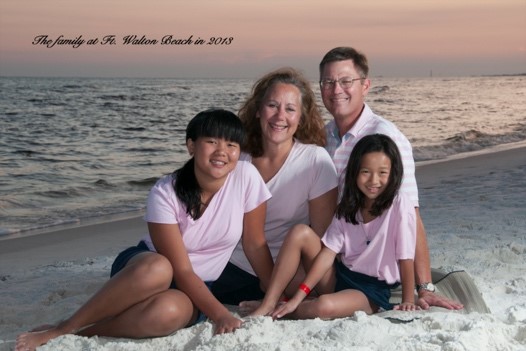 Do you have any children?
Do you have any children?
Due to bad neurology on both Pam’s side and my side we chose to adopt two children from interior China, two years apart, in 2003 and 2005. The days are long but the years are short, and they’re now ages 16 and 18.
What sorts of interesting places has your position taken you? Do you have a favorite?
Last fall I traveled to Abu Dhabi to teach Oil & Gas Economics and Uncertainty as part of ADIPEC, the Abu Dhabi International Petroleum Exhibition and Conference. It was quite a conference with 150,000 attendees from 139 countries. Speakers included Condaleeza Rice, the Secretary General of OPEC, and countless other dignitaries and executives from around the world. My students included professionals not only from the U.A.E., but also from France, the U.K., India, Lebanon, and other countries.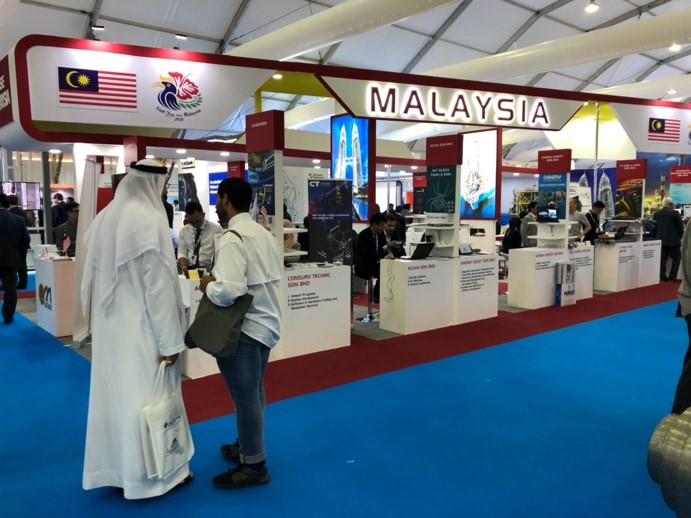
In 2017, the Mexican National Petroleum Congress invited me to teach the same course through two translators at an exhibit hall built on the Cinco de Mayo battlefield. It was interesting teaching and discussing economics with those from a highly socialist country.
However, my favorite place to go for career reasons happened prior to Fuqua when I went to Alaska for 20 months as a reservoir engineer to manage a new $300 million North Slope oil reservoir located 45 minutes down the road from Prudhoe Bay and adjacent to the Beaufort Sea. It was fun picking two well locations a month at $2 million each, supervising well site operations in 40 below zero F temperatures (-65F or less wind chill) at a cost of $3,000 per hour and writing a white paper to the president of the corporation. I was just a 26-27 year old kid having fun!
What is the best professional advice you’ve received?
From Andy Widmark, Fuqua Professor of Real Estate: “Adding value through creativity”. Arthur Schopenhaur once wrote: “Genius…hits the target others do not see.”
Aside from your current role, what is your dream job?
Being a serial entrepreneur (although I invest client funds scientifically and conservatively) who truly loves to work, I wish I had five additional days every day. What five jobs would I do in addition to my financial advisory practice?
Job 2: Promote my book and course, which I am doing now in slack time as it arises.
Job 3: Make Oil & Gas Economics and Uncertainty a full-time gig.
Job 4: Move to a small town and start an American hardwood products mfg company.
Job 5: Redevelop a few old oil fields.
Job 6: Further my photography endeavors.
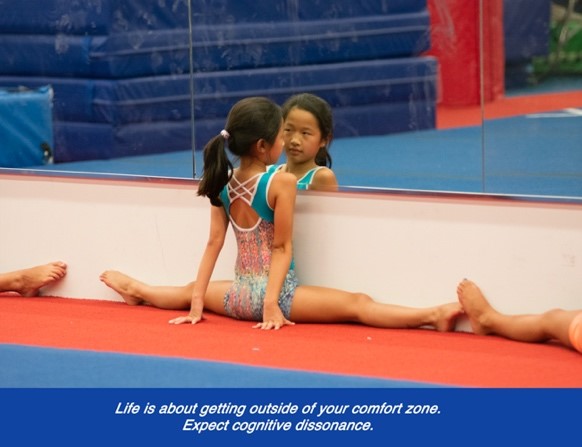 Using the skills I learned at Fuqua I could easily turn any of the above into a viable business.
Using the skills I learned at Fuqua I could easily turn any of the above into a viable business.
Several decades ago I read a quote from Theodore Roosevelt that went something like: “Pity the poor soul who forever lives in a gray twilight, who never experiences the brilliant light of success nor the absolute darkness of failure.” Entrepreneurship is a pathway to creativity and adventure. People think entrepreneurship is about an idea or venture capital or technology, but I believe it’s more about attitude.
Professionally or personally, what are you excited about right now?
I’m most excited about my family’s togetherness and hopes for my daughters’ future. I’m also very, very excited about getting my course on-line and building a YouTube channel I recently initiated, Financial Confidence Through Systematic Investing.
What do you like to do outside of work?
 Too many things, too little time…I enjoy working with sustainable American hardwoods making a variety of things. It’s also fun to head down to Galveston for the afternoon with my computer and/or camera to enjoy a brew while overlooking the beach. I exercise three times a week, and I also enjoy taking my camera to the Houston Butterfly Museum. And a benefit of having the gastro-intestinal issues is that my food has to be home-cooked and fresh, so we have lots of great family dinners together. Pam usually shops and I often cook.
Too many things, too little time…I enjoy working with sustainable American hardwoods making a variety of things. It’s also fun to head down to Galveston for the afternoon with my computer and/or camera to enjoy a brew while overlooking the beach. I exercise three times a week, and I also enjoy taking my camera to the Houston Butterfly Museum. And a benefit of having the gastro-intestinal issues is that my food has to be home-cooked and fresh, so we have lots of great family dinners together. Pam usually shops and I often cook.
What about serving others?
Winston Churchill once said: “You make a living by what you get, but you make a life by what you give.” One of my favorite jobs was being the Financial Director for a campus ministry organization with 150 employees in six states. My office was in Pittsburgh immediately next to a high-rise housing project and the organization’s average salary was $18,000 per year, so it truly was a non-profit.
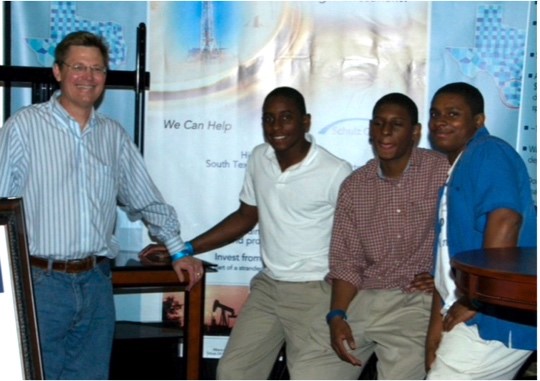 Something else I’ve done is tutor and mentor three at-risk teenage boys whose mother was deceased and whose father was serving a 20+ year prison term. I believe I am here on earth to serve my God, my family, and my fellow man. If I’m not doing this, I’m not using the gifts bestowed upon me. The skills we learn at Fuqua give us each an incredible capacity to serve those who are less fortunate and/or make less fruitful life decisions. Those we serve may or may not capitalize on the opportunity, but that’s their decision. Our job is to extend our time, our heart, and our money in a no-strings attached, no gain for us, interpersonal offer to help.
Something else I’ve done is tutor and mentor three at-risk teenage boys whose mother was deceased and whose father was serving a 20+ year prison term. I believe I am here on earth to serve my God, my family, and my fellow man. If I’m not doing this, I’m not using the gifts bestowed upon me. The skills we learn at Fuqua give us each an incredible capacity to serve those who are less fortunate and/or make less fruitful life decisions. Those we serve may or may not capitalize on the opportunity, but that’s their decision. Our job is to extend our time, our heart, and our money in a no-strings attached, no gain for us, interpersonal offer to help.
What is the most important thing you learned during your time at Fuqua?
By the sheer force of intense peer competition, learning to take my work product to the next level.
Who was your favorite professor?
I had several:
Cam Harvey: “So what if the return was 11%....how much risk did they take?”
Kevin McArdle in statistics: “Given A and B, what is the probability of C…?”
Andy Widmark: Helping me realize I had entrepreneurial potential.
Bob Nau: Truly an authentic guy working in a sea of cerebral brilliance.
Val Zeitheimal: The fun game of Markstrat (our team won - BIG)
What is your favorite Fuqua memory?
Early in March of my first year a classmate, Charlie Jobson, arranged for an auctioneer to meet those interested at a basement bar the night before the first NCAA basketball tournament game. After assuring the auctioneer that it was for charity, which it wasn’t, all 64 tournament teams were auctioned for values ranging up to $200.
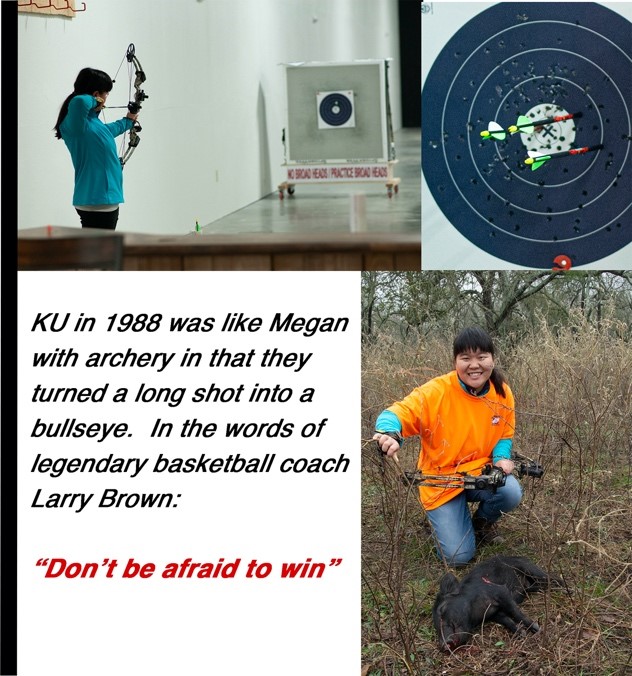 Betting PURELY WITH MY HEART, early in the auction I purchased the Kansas Jayhawks, my undergraduate alma mater, for $30. By the time the night was over Charlie had $1600 in the kitty. Winner would take half, runner-up would take a quarter, and the other two final four teams would each take an eighth.
Betting PURELY WITH MY HEART, early in the auction I purchased the Kansas Jayhawks, my undergraduate alma mater, for $30. By the time the night was over Charlie had $1600 in the kitty. Winner would take half, runner-up would take a quarter, and the other two final four teams would each take an eighth.
I was totally convinced I was a fool for purely following my heart and paying $30 for KU, which featured senior Danny Manning. KU was seeded 9th in their bracket. The team was so starved for guards that they pulled a football scholarship guy over to play basketball. KU had no chance, except that they did.
You can imagine the trash talk going on amongst us for a few weeks. But in the end, it was KU cutting down the nets and I collected my $800, which I then used to (1) Buy and cook burgers for everyone at the Friday afternoon keg; and (2) Pay my expenses for a Duke spring break ski trip to Steamboat organized by FSB classmate John Herbert.
Is there anything you’d change if you had it to do over?
Relationships. Life is about relationships. People don’t hire resumes; people hire people. Anything in life that’s worth doing involves relationships. Thus, if I had it to do over, I’d focus more on the relationships, not for the reason of potential self-promotion, but to get deeper into the game of life itself.
You live in Houston. Did Hurricane Harvey impact you?
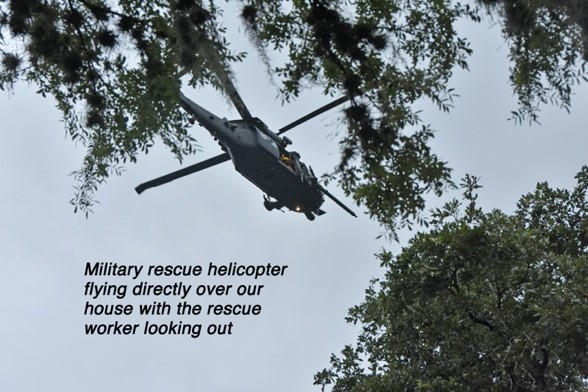 Yes, in a big way. We live on a contributory leg of the now infamous Buffalo Bayou, just a couple hundred yards from the primary Buffalo Bayou stream. When the U.S. Corps of Engineers opened the water gates to protect the levee and prevent catastrophic disaster, the Bayou rose 27 feet and stopped ½ inch short of flooding our home.
Yes, in a big way. We live on a contributory leg of the now infamous Buffalo Bayou, just a couple hundred yards from the primary Buffalo Bayou stream. When the U.S. Corps of Engineers opened the water gates to protect the levee and prevent catastrophic disaster, the Bayou rose 27 feet and stopped ½ inch short of flooding our home.
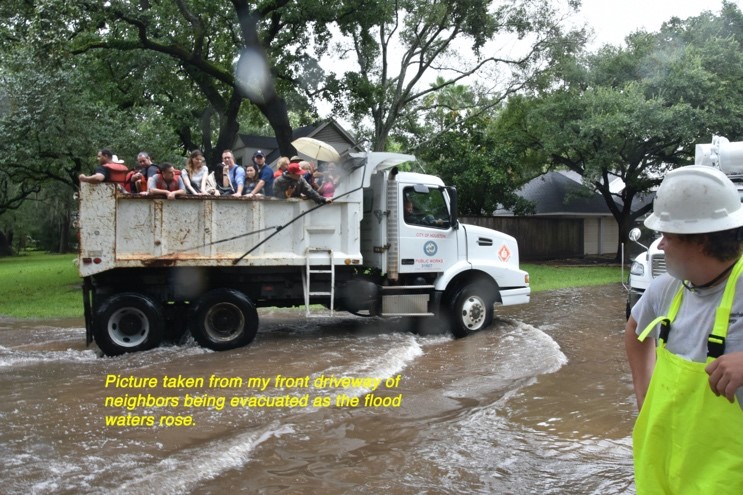 We evacuated at the recommendation of the second rescue worker when he knocked on our front door and told us to be at the bus down the street and around the corner within 15 minutes; otherwise, we were “on our own." Thus, in the space of 12 minutes my wife, two teenage daughters, myself and our standard poodle left home with nothing but a small backpack each. We then spent one night at the Thurgood Marshall High School, sleeping in the gymnasium while taking turns to watch the dog outside to prevent her theft. Not knowing it at the time, Megan’s cold had turned into pneumonia. Katelyn then caught Megan’s cold and ended up with pneumonia a few days later.
We evacuated at the recommendation of the second rescue worker when he knocked on our front door and told us to be at the bus down the street and around the corner within 15 minutes; otherwise, we were “on our own." Thus, in the space of 12 minutes my wife, two teenage daughters, myself and our standard poodle left home with nothing but a small backpack each. We then spent one night at the Thurgood Marshall High School, sleeping in the gymnasium while taking turns to watch the dog outside to prevent her theft. Not knowing it at the time, Megan’s cold had turned into pneumonia. Katelyn then caught Megan’s cold and ended up with pneumonia a few days later.
Fortunately, after one night at the high school shelter, friends picked us up and took us to their home. A few days later we stayed with Fuqua scholar and former classmate, Jim Dumler, for a few days. After eight days we were able to move back into our home, but it was several additional days and countless calls to the electric company before we had electricity.
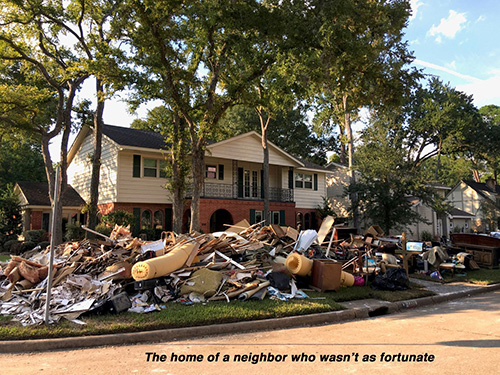 We have always had flood insurance, but we were not prepared for the emotional toll and upheaval, like a bad dream that turned into reality. It is surreal to see one’s neighbors being evacuated in the bed of a city dump truck while rescue helicopters fly overhead.
We have always had flood insurance, but we were not prepared for the emotional toll and upheaval, like a bad dream that turned into reality. It is surreal to see one’s neighbors being evacuated in the bed of a city dump truck while rescue helicopters fly overhead.
However, our faith and friends sustained us. Sometimes the sweetest tastes of life come in the most bitter of times. It is good to be reminded that we are all vulnerable and mortal.
What does Team Fuqua mean to you?
Heart-felt compassion. Let me explain…
Leading up to my Fuqua graduation in May 1989 many top-notch companies, including McKinsey & Company, Chase Bank and Proctor & Gamble, pulled my resume from the stack prior to visiting campus and explicitly invited me to interview. I had a strong resume that generated unsolicited attention.
Fast-forward five years. After two bad corporate employment experiences and then looking at over 100 oil and gas fields in an unsuccessful search to acquire an asset with no money of my own, my resume was dismal. Add to that Tourette’s Syndrome, causing my head to bob and twitch out of control, and severe depression, all undiagnosed and untreated. My mind wasn’t thinking right and my body wasn’t functioning properly.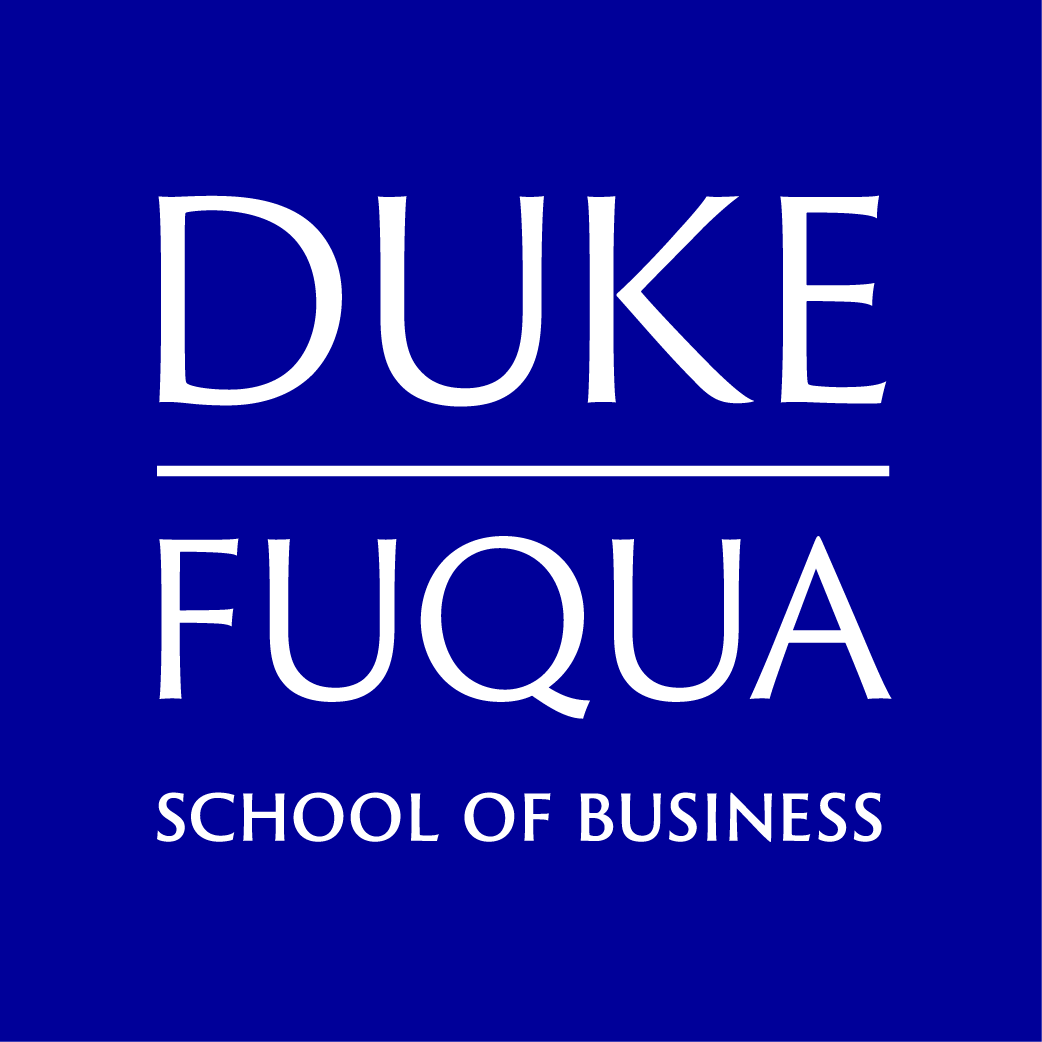 For a number of reasons, my wife and I had relocated from Houston back to her home state of Pennsylvania with a focus on Pittsburgh. I had no job, no money and wanted to pursue operations, a poor choice for my education and skills, although I reached that decision with input from a career coach. I had been nearly two years without a paycheck. Nevertheless, I was fearless and determined to the point of detriment. Knowing no one in western PA, I started networking among Duke MBAs, most of whom I didn’t know because they were from different classes. The Fuqua graduates always gave me an appointment and were kind. I am especially grateful for the compassion and interest of Bill Sutherland and Ben Lipsman, who both went above and beyond the call of duty.
For a number of reasons, my wife and I had relocated from Houston back to her home state of Pennsylvania with a focus on Pittsburgh. I had no job, no money and wanted to pursue operations, a poor choice for my education and skills, although I reached that decision with input from a career coach. I had been nearly two years without a paycheck. Nevertheless, I was fearless and determined to the point of detriment. Knowing no one in western PA, I started networking among Duke MBAs, most of whom I didn’t know because they were from different classes. The Fuqua graduates always gave me an appointment and were kind. I am especially grateful for the compassion and interest of Bill Sutherland and Ben Lipsman, who both went above and beyond the call of duty.
Eventually, I landed a financial director job at the above mentioned campus ministry organization working 45-70 hours a week for $25,000 a year. I truly enjoyed the position, but when my Tourette’s was diagnosed nearly three years later the physician put me on a medication nicknamed “lights out” that made me sleep 12-14 hours a day, making my job untenable. Thus, I returned to the oil and gas industry via a position first in Lafayette, Louisiana, and transferred to Houston less than a year later.
From the depths of my heart, I will forever be thankful for the Fuqua MBAs in the Pittsburgh area who were kind enough to give me an appointment and compassionate enough not to be judgemental. They were a lifeline when I desperately needed help. They were friends when I was a stranger in a strange city with no other contacts.
So as we look ahead and reflect back, I hope we’ll all embrace kindness, compassion, and humility. By doing this, we can help Dean Boulding and his team take Fuqua to a level that gets even more global attention while others look upon us with envy and wonder what makes the place so special.
Thank you for your time and interest.
Rod
Credits:
- Many thanks to Jim Dumler and Pam Schulz for editorial assistance.
- All photos by Rod.
- Special thanks to Arianna Decreton and the Fuqua School of Business.